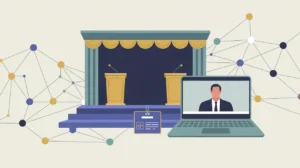Importance of Multinational Enterprises
Multinational enterprises (MNEs) are powerful actors in the global economy, driving investment, trade, and technology transfer across borders. In international development, they contribute to job creation, infrastructure, and integration into global markets, while also raising concerns about labor rights, taxation, and environmental impacts. For nonprofits and social innovators, MNEs matter because their scale and influence can accelerate inclusive growth or deepen inequalities depending on how they operate. Their importance lies in shaping development pathways through cross-border capital, expertise, and supply chains.
Definition and Features
Multinational enterprises are companies that operate in multiple countries, managing production, services, or investments across borders. Their defining features include:
- Global Operations: presence in several countries through subsidiaries, affiliates, or joint ventures.
- Capital and Technology Transfer: moving resources and knowledge between markets.
- Supply Chain Reach: integration of global production and distribution networks.
- Regulatory Complexity: navigating diverse legal and policy environments.
How this Works in Practice
In practice, MNEs operate across sectors such as energy, technology, agriculture, and manufacturing. For example, an MNE may establish a factory in a developing country to access labor and resources, while providing jobs and infrastructure in return. Governments often court MNEs for foreign direct investment (FDI) but face challenges in ensuring fair taxation and local value creation. NGOs and watchdog groups advocate for stronger accountability in areas such as labor standards, environmental protection, and corporate governance.
Implications for Social Innovation
Multinational enterprises have significant implications for social innovation because they possess the scale to mainstream sustainable practices and influence entire industries. Innovations such as impact investing, inclusive supply chains, and corporate 6NGO partnerships create opportunities for systemic change. For proximate actors, engagement with MNEs can bring both risks and opportunities, depending on governance and accountability mechanisms. Multinational enterprises are essential players in development systems, with the power to shape global and local outcomes.







